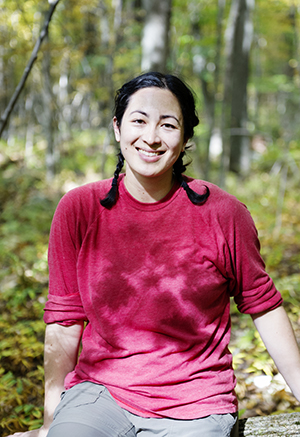Auniversity’s vitality and reputation depend in no small part on the dynamism of its graduate programs. This year, as the Graduate School of Arts & Sciences (GRS) continues to adapt to new innovations and demands, several recent changes have begun to pay off.
Thanks to a decision in 2013/14 to fund all PhD candidates for five years, GRS now attracts higher-quality doctoral students. Before, only 30% of accepted students chose BU over other universities, but that rose to 43% last year and 42% this year. The change is most dramatic in the humanities and social sciences: excepting economics, our largest PhD program, the majority—58%—of accepted doctoral students chose BU. As the quality of students continues to improve, so too will the programs, and we look forward to both our student body and the University as a whole becoming stronger as a result.
This year also saw a dramatic rise in master’s program applications, from 2,596 last year to 3,160 this year. This comes at a time when GRS has added three new programs, the oldest of which, a three-year playwriting MFA jointly supported by CAS and the College of Fine Arts, graduated its first cohort this spring. Though young, the program is already getting attention, with two plays by students in the first cohort winning Kennedy Center American College Theater Festival awards. One of those two plays also won the Goldberg Playwriting Award from Tisch School of the Arts at New York University, which included a staged reading at the Flea, a professional theater in New York City, and a cash prize of $7,500.
The newest GRS program, an MS in statistical practice, launched in 2013/14 and admitted its first seven students this January, with 18 more expected in the fall. Meanwhile, the MS in computer science, adapted from an MA program in 2012/13, has grown from a student body in the single digits to a fall 2015 matriculating cohort of 38 students. The computer science master’s programs have seen a marked rise in total applications, surpassing the creative writing MFA in 2014/15 to now boast more applicants than any department, save economics. As these and other new graduate programs continue to grow and attract stronger students, we will see BU become a more competitive and prominent research and learning institution. (See Appendix, GRS Registered MA/MFA/MS Students (by Department); GRS Registered PhD Students (by Department).)
While our new master’s programs have seeing exciting early success, two of our established PhD programs continue to rise in global prominence. In the 2015 QS World University Rankings by subject, Quacquarelli Symonds placed the BU economics and philosophy departments among the world’s top-40 programs within their disciplines. Both moved up in the rankings, with economics jumping 15 places. Read more
Graduate Student Success

“I want to study plant processes that are poorly understood,” says Rose Abramoff (GRS’15). Photo by Jackie Ricciardi
Here are just a few highlights of the successes our graduate students in our diverse programs had this past year:
Biology doctoral student Rose Abramoff received a dissertation fellowship from the American Association of University Women for her research on the relationship between climate change and the life cycle of plants. By studying the role of roots in the underground carbon cycle—a new science—Abramoff hopes to make useful predictions that can inform global warming policy. Read more
Three GRS students were awarded the Fulbright-Hayes Doctoral Dissertation Research Abroad Fellowships last year, and are currently pursuing their PhD dissertation research in Africa: Lilian Havstad (History and African Studies) is studying women's roles in the formation of the middle class in Mozambique; Martha Lagace (Anthropology and African Studies) is studying peoples' roles, behaviors, responsibility, accountability, and concern with social justice in areas that have experienced the devastating consequences of civil strife and war in northern Uganda; and Philip Rotz (History) is studying the history of dengue, a devastating mosquito-borne disease, in Durban, South Africa. A reviewer commented that he will produce, “in effect, an environmental history of an African city, presumably the first of its kind.”
Latin American studies graduate student Joshua Bruno received the third-ever Margaret and Robert Pastor Graduate Assistant Fellowship from the Carter Center. During the 10-week fellowship, he examined the link between Colombian gold mining and civil unrest. The Pastor Fellowship is granted to a student who is undertaking research in Latin America with a focus on issues such as democracy or social justice. Read more
Marine biology PhD student Liz Burmester is conducting research at the New England Aquarium to find a better diagnosis for dying coral reefs. Her work is part of a collaboration called Coral Whisperer between BU and the Virginia-based environmental group Conservation International. Read more
Two GRS students won Fulbright US Student Program Fellowships to pursue research overseas. Lynne Cooney, a PhD candidate studying African art history, received a Fulbright Student Award and will spend the 2015–16 academic year in Johannesburg, South Africa, researching contemporary art. Christina Jarymowycz, a sociology PhD candidate, will study in Ukraine. Her research spans economic sociology, immigration, and gender in Eastern Europe.
Anthropology PhD student Andrea DiGiorgio is spending 2015 in the jungles of Borneo, an island in Southeast Asia, gathering samples of food eaten by orangutans. Funded by a three-year graduate research fellowship from the National Science Foundation, DiGiorgio’s research goal is to learn more about primates by studying what they eat. Her hope is that this will lead to better conservation strategies and will give us a better understanding about the current human obesity epidemic. Read more
Kira Sullivan-Wiley, a PhD candidate in earth & environment, was the first BU student awarded a Moorman-Simon Civic Fellowship for her work in preventing environmental disasters in Uganda. By studying how programs from the Uganda Red Cross Society and other development organizations aim to reduce community vulnerabilities, Sullivan-Wiley will suggest more effective ways to get their message across. The Moorman-Simon Civic Fellowship recognizes PhD students whose research and scholarship addresses critical problems through engagement and community partnerships. Read more











